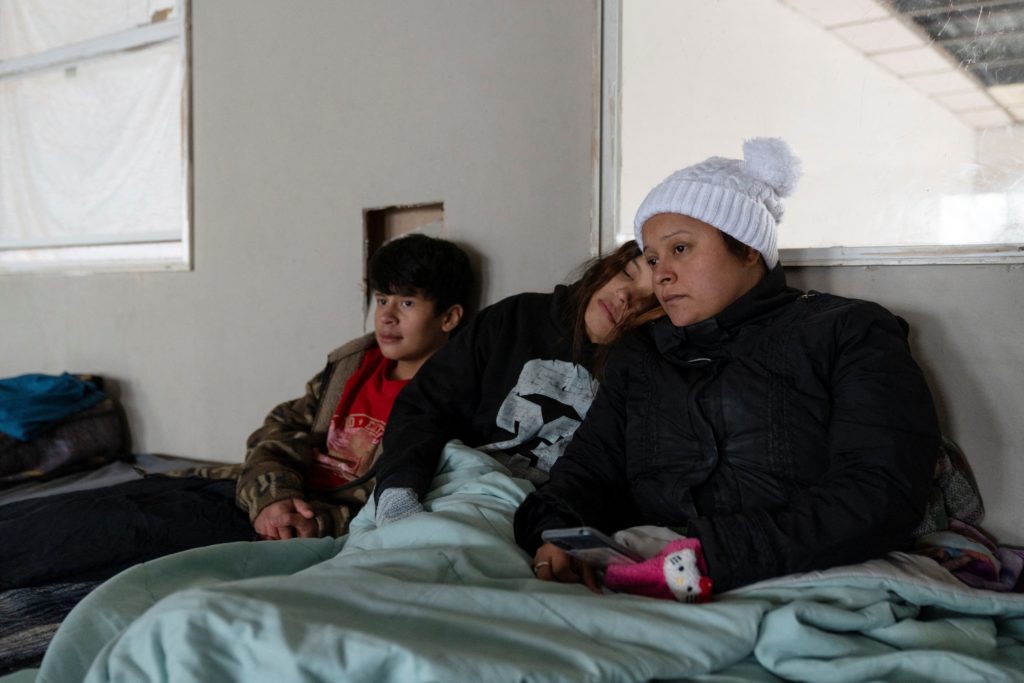What is one to make of only the second Catholic vice president in U.S. history lashing out at his own bishops in his first week in office? It would seem to bode ill for church-state relations in the near term as the Trump administration rapidly implements its anti-immigrant deportation agenda. Whether it will bode ill for relations between the bishops and Catholic voters, a majority of whom voted for Trump, remains to be seen.
At first blush, the sight of a Catholic politician stating that the bishops are into refugee assistance for the money echoes the anti-Catholic shibboleths of the 19th and early 20th centuries. During the recurring tides of immigration in U.S. history, there was often a hostile reaction from those who saw the immigrants — very often Catholic and poor — as a threat.
Nativists in the 19th century saw them as a fifth column for the pope. Reacting to the influx of Irish and Germans, many of them Catholic, one such nativist, Samuel Morse, said, “Our institutions ... are at the mercy of a body of foreigners, officered by foreigners, and held completely under the control of a foreign power. We may then have reason to say, that we are the dupes of our own hospitality."
Some politicians feared immigrants’ potential political power and were reluctant to give them citizenship. In the 20th century, a resurgent Ku Klux Klan joined politicians in promoting the anti-immigrant agenda. In the debate leading up to the 1924 law severely restricting immigration from southern Europe and Asia, Sen. Ira Hersey of Maine said that Americans had “thrown open wide our gates and through them have come other alien races, of alien blood, from Asia and southern Europe … with their strange and pagan rites, their babble of tongues.”
In lashing out at the U.S. bishops’ recent statements critical of the Trump administration’s decision to rescind a policy preventing immigration arrests at churches, schools, and hospitals — as well as of its plans to deport millions of undocumented residents — J.D. Vance ascribed it to greed.
In a Jan. 26 interview with CBS news personality Margaret Brennan, Vance, a Catholic convert, said, “As a practicing Catholic, I was actually heartbroken by that statement [by the bishops]. And I think that the U.S. Conference of Catholic Bishops needs to actually look in the mirror a little bit and recognize that when they receive over $100 million to help resettle illegal immigrants, are they worried about humanitarian concerns? Or are they actually worried about their bottom line?”
Such a statement ignores both Catholic teaching and the facts. The U.S. bishops, primarily through its office of Migration and Refugee Services, is “one of 10 national resettlement agencies that receive federal funding and partner with local organizations to assist refugee populations that qualify for federal assistance,” as OSV News reported.
The greater issue concerns the responsibility of Catholics to help the migrant and the foreigner. The Catechism of the Catholic Church talks about the obligation of “prosperous nations … to welcome the foreigner in search of the security and the means of livelihood which he cannot find in his country of origin.”

A Jan. 22 statement by Bishop Mark J. Seitz, chair of the USCCB’s Committee on Migration, captures the dual stance of the Church: Recognizing that every nation has the right to regulate its borders and put just limits on immigration, but also to avoid “policies with consequences that are contrary to the moral law.”
Vance’s assertion that the USCCB has “not been a good partner in common sense immigration enforcement” completely misunderstands what the Church’s role should be. It is not there to be an arm of the government. It is to serve people in need.
The bishops’ position is in many ways unchanged from a Sept. 26, 1919, pastoral letter marking the third plenary council in Baltimore. The bishops called on Americans not to look upon immigrants with distrust, but to extend to them “the hand of charity. Since many of their failings are the consequence of treatment from which they suffered in their homelands, our attitude and action toward them should, for that reason, be all the more sympathetic and helpful.”
While the bishops have been united on issues surrounding immigration, they still face a dilemma. Their priorities are many, and it serves both them and the administration to find a way to work together on areas of agreement while acknowledging there are sure to be differences as well.
For now, and in virtually every diocese, there are local Catholic parishes and diocesan organizations that continue to serve the needy without looking at their immigration status. In the spirit of the good Samaritan, that work will continue, regardless of national policies or threats. But potential raids on Catholic churches, offices, and schools — if they come to pass — will certainly ratchet up the tension.
Perhaps all Catholic communities should pray for the intercession of St. Frances Xavier Cabrini, who Pope Pius XII proclaimed “Patroness of Immigrants.”

